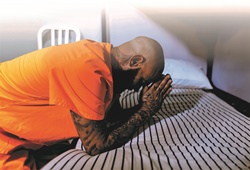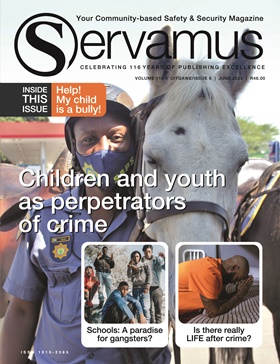By Kotie Geldenhuys
Photos by Dariusz Dziewanski, Pharie Sefali/GroundUp
It seems that some schools in the country have become a paradise for gangsters as children are recruited to join gangs and turf wars are fought on school grounds. In August 2022, a 14-year-old learner at iKaya Primary School in Kayamandi, Stellenbosch, was stabbed to death while another sustained injuries in a fight which the Western Cape Education Department (WCED) described as a gang-related incident. A 15-year-old youth, attending the same school, was arrested (Payi, 2022).
In the Western Cape, gangsterism is considered as a significant contributor to school violence, particularly when it comes to youth gangsters (Hlatshwayo, 2018). The escalation of gang violence in South African schools is a deeply concerning issue that has severe consequences for both learners and educators. The fact that violence is not only perpetrated by learners against fellow learners, but also directed towards educators, underscores the gravity of the problem. The social ills that exist in communities such as poverty, crime and the lack of access to basic services, contribute to the spread of a gang culture and the negative impact it has on schools.
Young gang members may have a transient and disruptive presence in schools, attending multiple schools or being expelled or dropping out from various schools. They may also target schools and communities for their criminal activities, exacerbating the issue of gang violence in South African schools (Hlatshwayo, 2018). A schoolboy gangster said: "I joined the Horrible Gang when I was still in primary school. I was about 13 years old, and I started to smoke weed. Then I went to Grade 7 and that school heard that I was with the Horrible Gang. Almost every day, I started to deal weed to get money. The money was just to get high. I went to another school, and I was suspended because there were also gangs, and they ganged up on me. I also stole a cellphone and stuff because my gang leader gave me orders to do so" (Serra, 2022).
Recruitment
Gangs have a sophisticated system of recruitment, including to recruit children to sell drugs at schools to form junior school-age gangs (GI-TOC, 2020). This trend occurs across the country such as in Nyanga on the Cape Flats where two rival gangs, namely the Vatos Locos and the Vuras, recruit members as young as 12 years old from local schools (Wegner, Brink, Jonkers, Mampies and Stemmet, 2018). A 36-year-old member of the Americans gang, who was recruited at a young age, said: "I was … just really a junior when I joined the gangs at school. I didn't really know anything other than the fact that I wanted to be an American gang member. They all had guns, plus they had cool teeth, and all the best clothing and the best shoes; some of them had the newest Ford with the spoilers and the cool rims and I knew that when I became an American then I would be able to also get those things. So, when I started, I was maybe nine years old and they gave me a knife and I poked this other kid at school that was always looking for k#& with me … from then, nobody messed with me. They gave me a gun when I was 12 years old and I shot some people." Despite the murder and the time he spent behind bars, he noted that he has no regrets about his choice of path because people in the community respect and fear him (GI-TOC, 2022).
********************************
[This is only an extract from an article published in Servamus: June 2023. The rest of the article discusses how gangs in schools are a growing problem; that they operate in both primary and secondary schools; the impact of gangsterism on learners and education; and how gangsterism in schools could be addressed. If you are interested in reading the rest of the article, send an e-mail to: This email address is being protected from spambots. You need JavaScript enabled to view it. or a WhatsApp or SMS message to: 078 712 1745 to find out what you need to do to acquire the article. Ed.]








